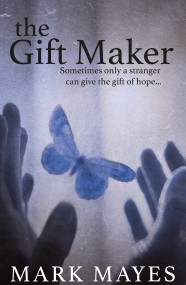 Where to begin to review a book that defies categories and genre classification? From the first line of The Gift Maker the reader is absorbed into a world that is both real and unreal, secular and magical. A fantasy and a morality tale. A world in which male students get drunk, spout philosophical polemics and lust after young women who seem to have a lot more self-discipline.
Where to begin to review a book that defies categories and genre classification? From the first line of The Gift Maker the reader is absorbed into a world that is both real and unreal, secular and magical. A fantasy and a morality tale. A world in which male students get drunk, spout philosophical polemics and lust after young women who seem to have a lot more self-discipline.
One such student, Thomas Ruder receives a strange package in the middle of the night at his lodgings but refuses to open it. The next day, the young woman he’d love to know better, Liselotte Hauptmann, confides that she too has received an unsolicited gift and she takes him back to her rooms to reveal its contents…
Dauman is the gift maker who has a special present for the third friend Johan called Jo. Each of them makes his or her way independent of each other to the border town of Grenze where a strange impresario, Reynard, pulls the theatrical strings and weaves a tantalising web of subterfuge.
 Mark Mayes creates worlds within worlds using smoke and mirrors and provides a challenging and thought-provoking read. Some of the descriptions I found to be almost too detailed in their gruesomeness they and reminded me of Dickens with his visions of the debauchery, poverty and evil of Victorian London. And yet this is counterbalanced by poetic twists of fantasy which will have you enthralled.
Mark Mayes creates worlds within worlds using smoke and mirrors and provides a challenging and thought-provoking read. Some of the descriptions I found to be almost too detailed in their gruesomeness they and reminded me of Dickens with his visions of the debauchery, poverty and evil of Victorian London. And yet this is counterbalanced by poetic twists of fantasy which will have you enthralled.
References to fairy tales abound, plus nods to the book of Genesis and the Holy Trinity of the New Testament. The final chapters are far more lyrical in tone – and when you get to the metamorphosis/transfiguration you’ll see why.
Mark Mayes is a masterful and original storyteller. His unique narrative style is truly inspired and I found this book totally fascinating and recommend it to anyone who is looking for a book that is far from ordinary.
Published by Urbane Publications on 23 February 2017, The Gift Maker is available from Amazon.
Follow Mark on Twitter @Mark_J_Mayes
